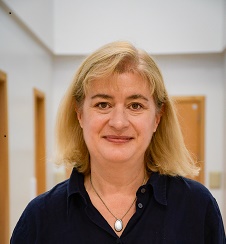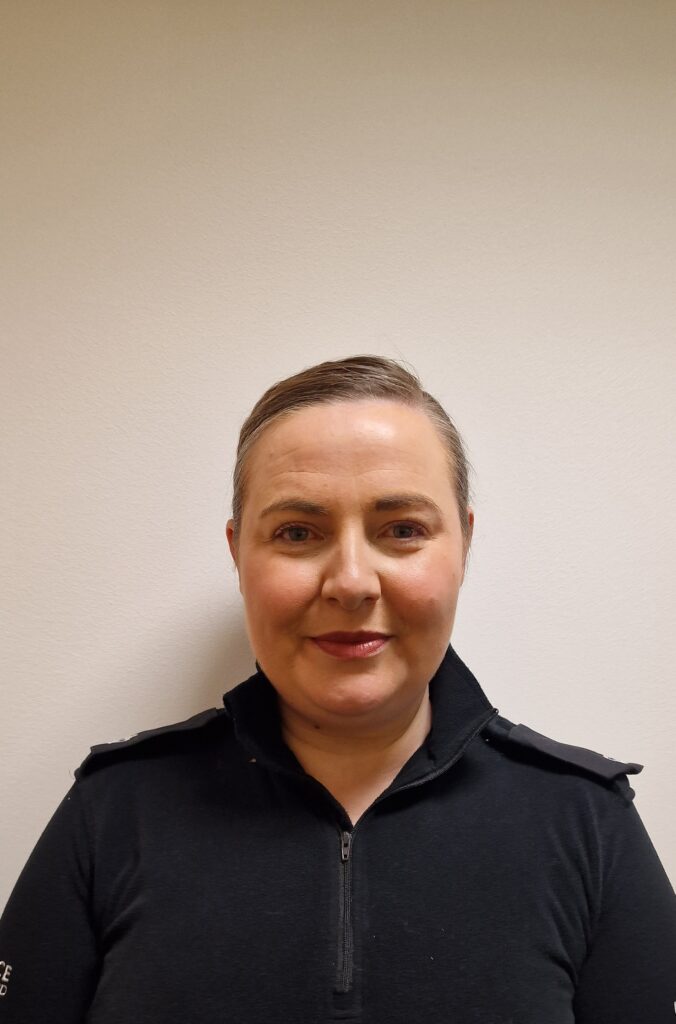

This pioneering and exciting two-day event will see international and local speakers from academia, public health and policing come together to explore the subject of Neurodiversity in Policing. This event will be hosted by Edinburgh Napier University in partnership with the Global Law Enforcement and Public Health Association, the Scottish Institute for Policing Research and Police Scotland.
The event will take place on the 12th and 13th of February 2025 at the Sighthill Campus of Edinburgh Napier University.
The two-day event will offer a platform for learning, exploring, and challenging how neurodiversity impacts officers/staff and the public they serve. Day one will focus on ‘Our People’ as the theme for discussion with Day 2 focusing on ‘Our Public’.
Day Two will be opened by Deputy Chief Constable Alan Spiers from the Professionalism, Strategy, and Engagement team and Professor Nick Antonopoulos, Deputy Vice Chancellor, and Vice Principal of Research & Innovation Edinburgh Napier University.
Tony Bowman, Policy & Development, SOLD Network
We propose a conference presentation which will be developed on a model of co-production with people with lived experience. The presentation will be co-delivered by members of the SOLD User group and SOLD workers. All members of the SOLD User group are people with learning disabilities and/or autism with experience of the justice system as an accused person.
The content of the presentation will focus on the key reasons people with learning disabilities and autism come into conflict with the law. This will cover:
We will also provide insights into the key elements required for inclusive justice including identification of needs, accessible information, and additional support, both in relation to system processes, but also for successful long-term rehabilitation.
Speaker: Dr Megan Parry
Improving Police Encounters: Experiences and Suggestions from ADHD and Autistic Australians
Relationships between the autistic and/or ADHD communities and the police have traditionally been strained. And while research has been expanding on how individuals in the autistic and/or ADHD community may view and fear the police, relatively little research has been directed towards improving relations between these communities and the police. Moreover, even less of this research involves working directly with autistic and/or ADHD individuals. This study seeks to address this gap in understanding police relationships with the autistic and/or ADHD communities using a mixed methods survey of 114 neurodivergent Australian adults. Respondents were asked about their prior experiences with the police as well as suggestions for what they would like to see from the police in the future. Suggestions from the respondents represent relatively small changes that could greatly improve encounters in meaningful ways, not just for Australian policing but policing generally.
Speaker: Dr Jana de Villiers – Forensic Network Clinical Lead for Intellectual Disability and Autism, and Consultant Psychiatrist for the National High Secure Intellectual Disability Service for Scotland and N Ireland, based at The State Hospital, Carstairs
This presentation will review the impact and relevance of autism and intellectual disability in forensic settings. Updates on the current research evidence base will be provided. The implications of identifying neurodevelopmental disorders and common co-occurring conditions when assessing people in contact with the criminal justice service will be discussed. The role of individual clinical formulation in the development of treatment plans and risk management plans will be highlighted.
Speaker: Dr Alice Siberry – Specialist Neurodiversity Criminal Justice Consultant
Reframing vulnerability in policing neurodivergent people
As Specialist Criminal Justice Neurodiversity Consultant and Academic Lead at Creased Puddle, Dr Alice Siberry, will share key insights from her forthcoming book, ‘Diversity, Difference or Disorder: Exploring Neurodiversity in British Policing’. Her presentation will introduce the concept of “situational vulnerability”, exploring how neurodivergent peoples’ perceived vulnerability can arise from differences being misunderstood within policing contexts. Alice will highlight opportunities to enhance training and systemic understanding, offering practical recommendations for practice and considering ways to build inclusive approaches that better support neurodivergent people who come into contact with the police.
Speakers: Superintendent Patricia Robertson and Claire Danskin, Clinical Nursing Manager, South East Healthcare & Forensic Medical Services for People in Police Care
This presentation will discuss how people are supported within Police Custody in Scotland and how both police and NHS can develop services in the future to ensure neurodivergent people in custody are supported and understand the criminal justice processes.
The purpose of this workshop is to inform national and international practice.
The workshop will explore police practice, challenges and solutions in recognising and responding to people with neurodiverse conditions and /or Traumatic Brain Injury.
This workshop will facilitate a safe, inclusive space for honest dialogue that leads to practical improvements in Police Scotland to support neurodivergent colleagues and interactions with neurodivergent individuals, inform research opportunities, policy, and education.

Dr Inga Heyman (Associate Professor, Policing and Public Health), Edinburgh Napier University, is a Fellow of the Global Law Enforcement and Public Health Association (GLEPHA) and Honorary member of the UK Faculty of Public Health. Inga is a registered Adult and Mental Health Nurse and qualitative researcher, with a clinical, educational and research career in Australia and Scotland. Inga’s professional practice, teaching and research focus lies at the intersect of policing and public health. This is underpinned by clinical practice across a broad range of health, police and public protection services including emergency mental health, substance use, sexual and maternal health and police custody. Inga is Co-Director of the Scottish Centre for Policing & Public Health, and lead for interprofessional learning. Inga works with a range of national and international partners in an advisory capacity to support policy, practice, and research development. She enjoys a strong and continued affiliation with the Scottish Institute for Policing Research (SIPR) and Police Scotland.

Megan M. Parry, (PhD), is an Associate Professor in the Department of Criminology and Criminal Justice at the University of Rhode Island. Her research draws on theories of police legitimacy, social cognition, and media studies and focuses on public perceptions of policing. Her current research examines policing and disabled populations, in particular autistic and Deaf and hard of hearing communities experiences and perceptions of the police. Her work has been published in Crime and Delinquency, Law & Society Review, Justice Quarterly.

Dr de Villiers is the Forensic Network Clinical Lead for Intellectual Disability. She is Consultant Psychiatrist for the High Secure Intellectual Disability Service for Scotland and Northern Ireland, based at the State Hospital. Prior to her appointment at The State Hospital, she was the Consultant Psychiatrist for the Fife Forensic Learning Disability Service from 2011 until 2018, with responsibility for a regional low secure ward, a forensic learning disability locked ward and the Fife-wide community forensic learning disability team. She also contributed to a forensic autism advisory service. She has presented on forensic aspects of neurodevelopmental disorders at both national and international conferences, and contributed to the reference textbook ‘Forensic Aspects of Neurodevelopmental Disorders: A Clinician’s Guide’, published in October 2023. She is currently Chair of the Intellectual Disability Faculty for the Royal College of Psychiatrists in Scotland.

Alice received her PhD in Criminology and Law from the University of Sheffield in July 2021. She also holds a first-class degree in Counselling, Coaching and Mentoring and an MSc Psychology degree. Throughout her studies, Alice continued to gain experience in the Criminal Justice sector and the neurodiversity sector. She has worked with North and West Yorkshire Police, and the Independent Office of Police Conduct. She also lectured at the University of Sheffield and York St John University, where she worked primarily with neurodivergent students. Alice is a Specialist Neurodiversity Consultant at Creased Puddle. Continuing her personal and professional passion for neurodiversity, she delivers training and consultancy to a wide range of businesses and organisations. Alice is also highly experienced in managing the most complex and high-profile Workplace Needs Assessments. As Academic Lead, she bridges academic research with practical applications, ensuring innovative and evidence-informed approaches to neurodiversity in the workplace. She also collaborates with universities on consultancy research projects, providing tailored solutions and insights informed by her academic and practical experience. In recognition of her research contributions, Alice was awarded the Translational Fellowship by the ESRC Vulnerability and Policing Futures Research Centre. This fellowship supports her ongoing research into neurodiversity, particularly within policing. Her first book, “Diversity, Difference or Disorder: Neurodiversity in British Policing”, is currently in development and will be published early 2025.

Global Strategic Consultant | Transforming Public Safety, Health, and Wellbeing. Professor Stan Gilmour is a distinguished strategic consultant with over 30 years of experience in law enforcement, public safety, and partnership-building. As the Founder and CEO of Oxon Advisory (OXA), established in 2023, he provides innovative solutions to advance community safety, health, and wellbeing. Throughout his career, Professor Gilmour has demonstrated exceptional leadership in law enforcement, with Thames Valley Police, the South East Counter Terrorism Unit, and as Director of the Thames Valley Violence Reduction Unit. His expertise spans neighbourhood policing, counterterrorism, organised crime, major investigations, and violence prevention, with a deep commitment to collaborative approaches at local, national, and international levels. In addition to his operational achievements, he is a respected academic, holding positions as a Professor at Keele University, a Senior Research Fellow at the University of Exeter, and an external examiner at the University of Cambridge. His research focuses on neurodisability, violence prevention, state threats, and capacity-building strategies for harm reduction. Professor Gilmour has also been a pioneer in data collaboration, leading the development of the UK Common Data Platform, a groundbreaking initiative to improve cross-sector information sharing. Internationally, he has worked extensively with the Organisation for Security and Cooperation in Europe (OSCE) and the United Nations Office on Drugs and Crime (UNODC) to enhance global capacities for prevention and harm reduction. Recognised for his contributions, in 2024 he was awarded the King’s Police Medal for distinguished service and received the Home Secretary’s Commendation in 2023 for services to home affairs. As a Fellow of the Royal Society of Arts and a member of numerous national and international advisory boards, he continues to shape the fields of public safety and community wellbeing. A published author and thought leader, Professor Gilmour shares his insights on policing, organised crime, data collaboration, systems leadership, neurodisability, equity, and human rights through academic and professional platforms. His work embodies a forward-thinking vision, integrating innovation, collaboration, and a deep commitment to creating safer, healthier communities worldwide. For more, visit his LinkedIn: https://uk.linkedin.com/in/stan-gilmour

Trish Robertson is a Superintendent with Police Scotland, covering the role of Partnerships and Preventions for Renfrewshire, Inverclyde, Argyll and West Dunbartonshire. She has 20 years police experience, having joined Lothian and Borders Police in 2005. She has worked in a variety of roles across policing, including response, community, CID, Major Investigations, HMICS (secondment) and Executive Support. She is a trained Hostage and Crisis Negotiator and Coordinator and has worked with negotiators from across the globe. She has also worked in Malawi, developing and delivering training for police colleagues in relation to child protection and gender-based violence. Prior to her current role, Superintendent Robertson worked within Criminal Justice Services Division and held the portfolio for Custody Healthcare and Interventions. This involved working with NHS health boards and 3rd sector organisations to improve the identification and support for underlying causes of offending and vulnerabilities, to improve outcomes and reduce re-offending.

Claire Danskin is Clinical Nurse Manager with NHS Lothian covering the South East of Scotland Forensic Healthcare and People in Police Custody Service. She has over 13 years of Health care experience in a variety of Mental Health nursing roles as well as guest lecturing at a number of Scottish Universities around Forensic Healthcare with a particular interest into risk and attitudes to risk.

Professor Colin McKay joined the Centre for Mental Health and Capacity Law as a Professor in 2020. From 2014 to 2020 I was the Chief Executive of the Mental Welfare Commission for Scotland. From 1999-2014 he was a civil servant (from 2004 senior civil servant) with the Scottish Government. Areas he worked on included justice policy, public service reform, strategy, and mental health. He was secretary to the Millan committee on mental health law and the MacLean committee on serious violent and sexual offenders. He trained as a solicitor and from 1989-1998 was a legal and policy adviser with ENABLE Scotland. He is a member of the Executive of the review of mental health law led by John Scott QC, and previously chaired a working group of the Wessely review of the English Mental Health Act.

Tony has worked as a social worker with people with learning disabilities and difficulties for almost twenty years. He believes passionately in lived experience and empowering the voice of marginalised and powerless people.Since 2016 he has worked on the SOLD Network, striving to combat the disadvantages experienced by people with learning disabilities and autism in conflict with the law. He refers to communication support needs (CSN), as across all neurological and cognitive diversity, difficulties within the justice system are similar. He firmly believes a justice system is achievable that can: reliably identify communication support needs at the earliest opportunity; embrace the optimum use of Diversion from Prosecution (needlessly criminalising people can cause more harm than the original offence); have supports and measures in place that allow equal access and full participation at every stage of the justice pathway; provide person-centred community-based sentence options to properly address the causes of offending behaviour of people with CSN, and effectively support people to avoid reoffending; provide long-term rehabilitative support to meet basic human needs in healthy and legal ways. Priority should always be ‘what is going to be the most effective way of making sure this does not happen again.’ He has helped many in the justice system see the sense of focusing on communication and not medical conditions.

Nick joined Edinburgh Napier in January 2019 from the University of Derby, where he was Pro Vice Chancellor (Research and Innovation) and Research Professor in Cloud Computing.He has more than 20 years of academic and leadership experience, with a very strong background in initiating, leading and delivering improvements at an institutional level.Nick has an excellent international reputation in his field, evidenced by his papers, books, chairing of prestigious conferences, and his active leadership of broad reaching research partnerships nationally and internationally. He has an extensive network across government, commerce and industry. As well as the Dean and Research and Innovation Office, the Deans of the Schools of Computing, Engineering & Built Environment and Health & Social Care report to Nick.

Deputy Chief Constable Alan Speirs has executive responsibility for Professionalism, Strategy and Engagement, which includes the following areas of business: Professionalism and Assurance;,Policing Together, Partnerships and Prevention, Strategy and Analysis. Prior to his appointment, DCC Speirs was Assistant Chief Constable for Professionalism and Assurance, joining the Executive Team in 2017.He started his career with Strathclyde Police in 1988 and has performed command roles within Local Policing (Renfrewshire and Inverclyde), C3 and Professional Standards. He was promoted to DCC in March 2024, having served as T/DCC since July 2023.